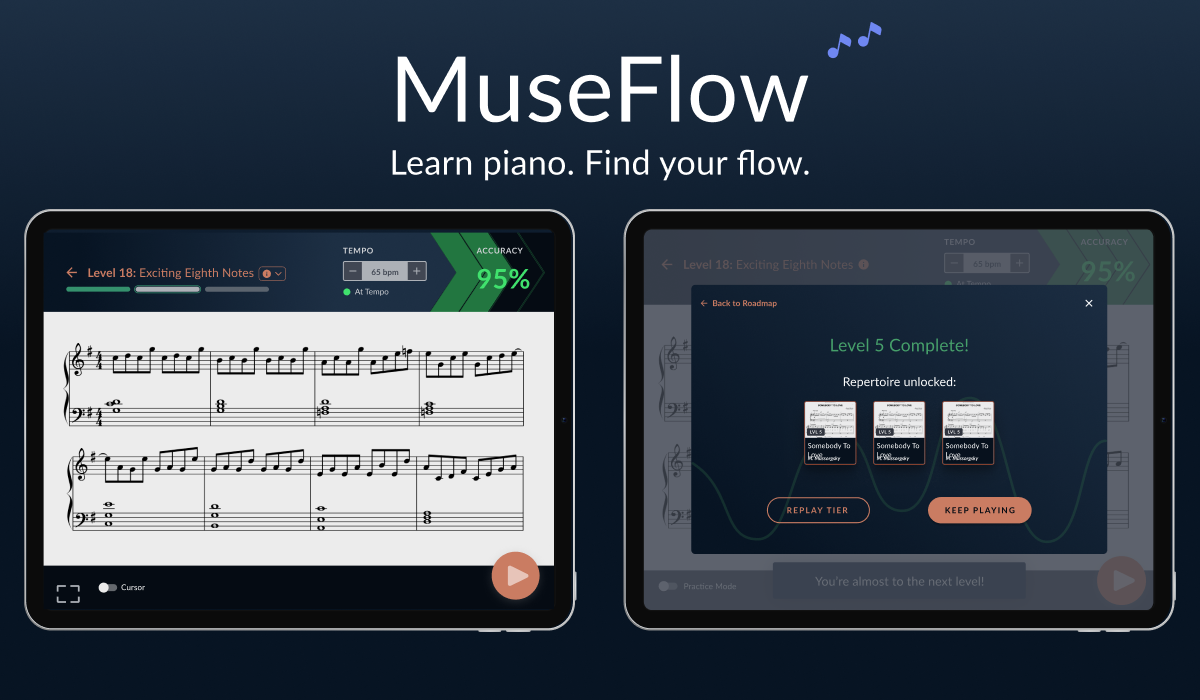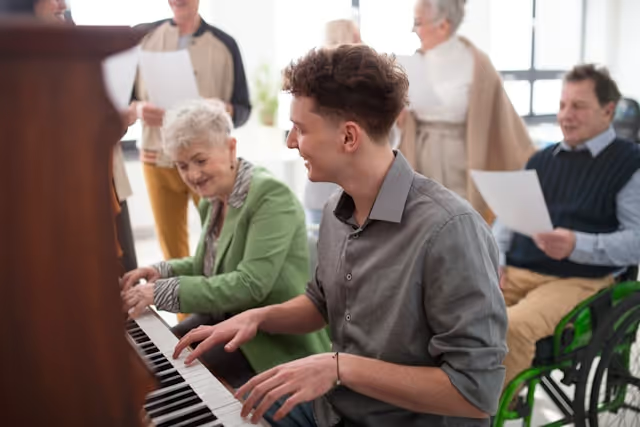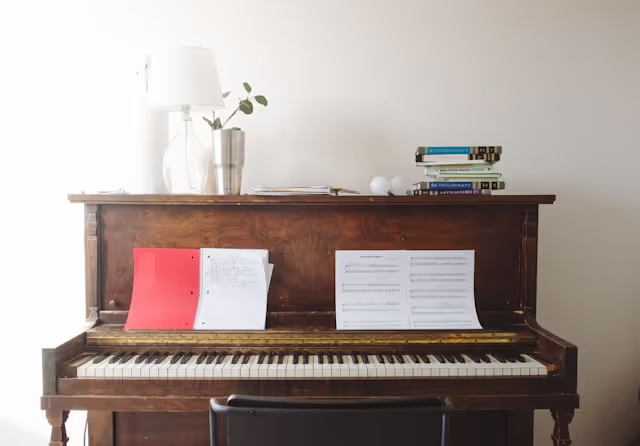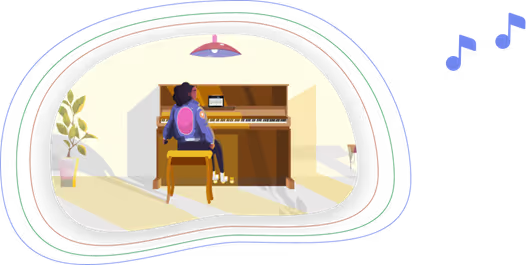Can Adults Really Learn Piano From Scratch?The Answer Might Surprise You
Is it too late to learn piano at 30? This question haunts countless adults who dream of playing their favorite songs but worry they've missed their window. The short answer might surprise you: absolutely not. Adults often have significant advantages over children when learning piano.
Let's debunk the myths and explore why age 30, 40, or even 60 might be the perfect time to begin your piano adventure.
The Myth of the "Critical Period" for Piano Learning
For decades, people believed musical ability had to be developed in childhood. This myth has discouraged millions of adults from pursuing their musical dreams. The truth is far more encouraging.
Neuroscience research reveals that adult brains are far from being fixed, with factors such as learning changing neuronal structures and functions. Your brain at 30, 40, or 50 is still remarkably capable of forming new neural pathways. Studies show that musical training creates plastic changes in adult brains and benefits extend well into adulthood.
Why Adults Actually Have Learning Advantages
Can adults learn piano without a teacher? Absolutely! Not only can adults learn piano without a teacher, but they often excel at it. Adults bring unique advantages:
- Superior Focus: Unlike children who need constant motivation, adults choose to learn piano. This intrinsic motivation leads to consistent practice and faster progress.
- Better Pattern Recognition: Adult brains excel at identifying musical patterns and relationships, accelerating the learning process.
- Life Experience: Adults understand rhythm from daily activities and have emotional connections to songs that make practice meaningful.
- Goal-Oriented Learning: Adults know exactly what they want to play, driving more efficient practice sessions.
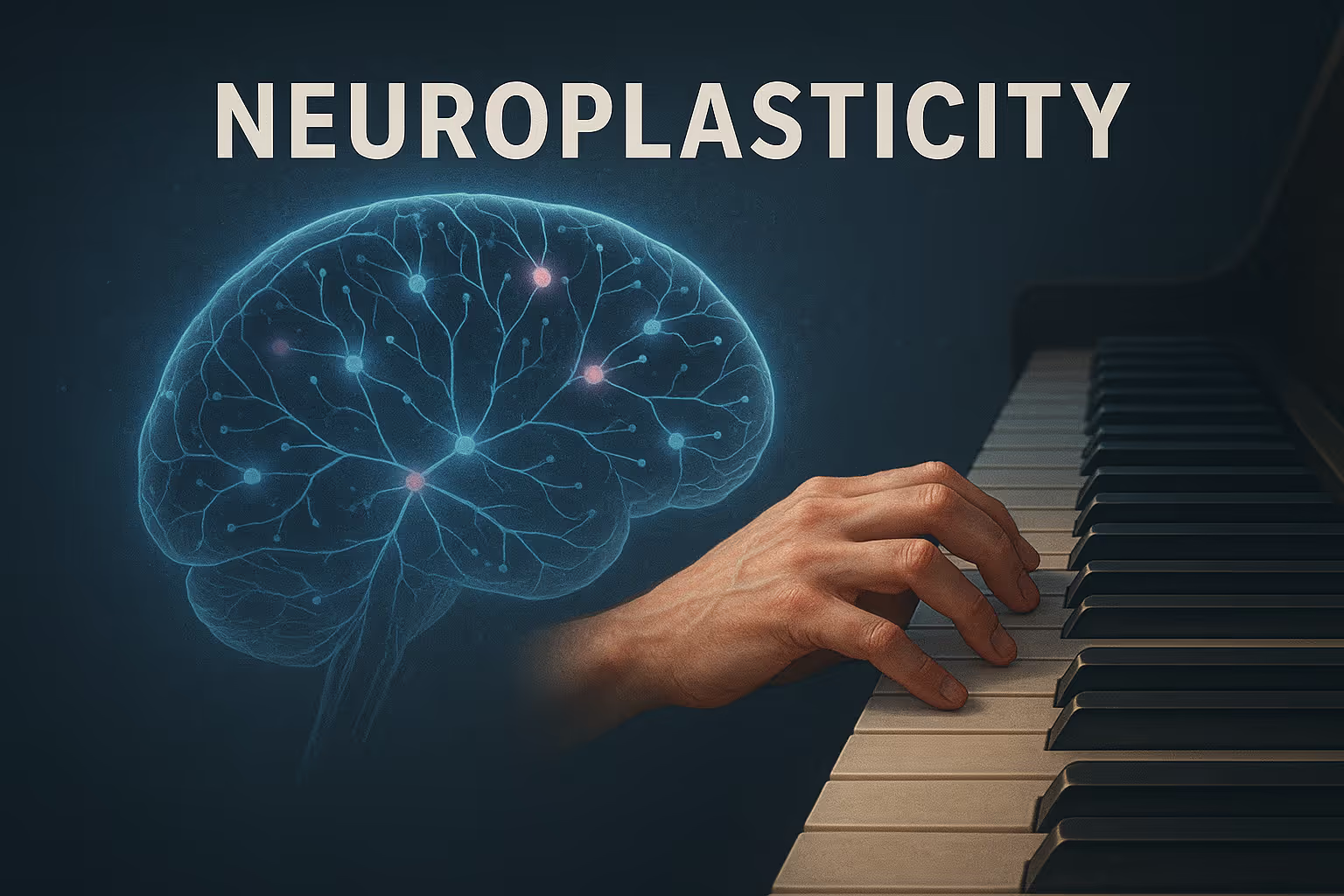
The Science Behind Adult Musical Learning
The easiest way to learn piano as a beginner adult starts with understanding how your mature brain processes new information. Research demonstrates that adult musical training produces measurable changes in brain structure and function. Key to this is the concept of neuroplasticity. This is our brain’s ability to change and adapt by forming new connections between neurons. By growing, we can keep learning and improving at any age.
Neuroplasticity doesn't diminish with age... it simply works differently. Adult brains excel at connecting new information to existing knowledge and maintaining sustained attention during practice. The key is choosing learning methods that work with adult learning psychology, not against it.
How MuseFlow Revolutionizes Adult Piano Learning
Traditional piano instruction often fails adults because it's designed for children. MuseFlow recognizes that adult learners need immediate feedback, clear progress tracking, and engaging challenges.
- Real-Time Feedback That Builds Confidence. Every note you play receives instant confirmation. This eliminates the frustration of wondering whether you're playing correctly.
- Sight Reading First Approach. MuseFlow prioritizes sight reading from day one, aligning with adult learning strengths. The fastest way to learn piano as a complete beginner leverages your pattern recognition abilities.
- Self-Directed Learning. Adults need flexibility that accommodates other responsibilities, like family and work. MuseFlow's approach is perfect for self-taught pianists who want to learn without a traditional teacher. Practice at 6 AM or 11 PM. Your schedule, your choice.
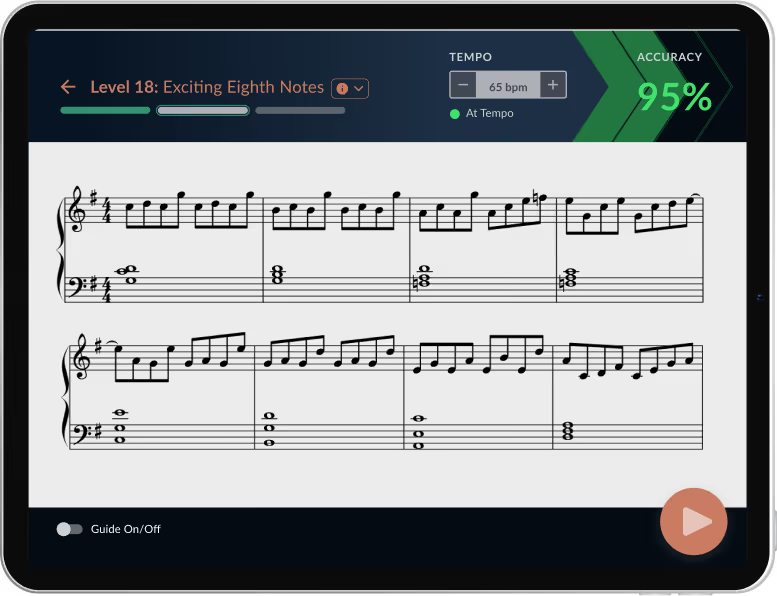
Overcoming Common Adult Learning Obstacles
Fundamentally, the easiest way to learn piano as a beginner adult is to know your abilities aren’t fixed. Your skills can be developed through practice using the best tools available that work with your adult brain. When learning piano, this mindset turns mistakes into opportunities, helping you progress faster and enjoy the process. Here are a few of the lies you should watch for:
"My fingers aren't flexible enough" — Finger dexterity improves with practice at any age.
"I don't have time" — Even 15 minutes daily produces noticeable progress.
"I'm too old to memorize music" — MuseFlow's sight reading approach means you can play new music immediately.
"I'll never be as good as someone who started young" — Playing your favorite songs beautifully is achievable regardless of when you start.

The Adult Advantage: Emotional Connection
Adults bring something children can't: deep emotional connection to music. When you play a song that reminds you of a special event or season in your life, that emotional investment accelerates learning.
This emotional engagement creates "meaningful learning." New skills connect to existing memories, making them easier to retain. This type of engagement capitalizes on your brain's neuroplasticity, accelerating your ability to learn piano as an adult.
4 Truths Why Your Piano Journey Can Start Today
- Is it too late to learn piano at 30? Science says no. Your brain says no. MuseFlow's adult learners in their 30's, 40's, and 50's say no.
- Can modern learning technology help? Definitely! MuseFlow offers unprecedented access to technology and data science that's designed for adults to learn.
- Can adults learn piano without a teacher? With the right tools, absolutely. MuseFlow provides the structure and feedback that traditional self-teaching methods lack.
- Ready to surprise yourself? Your piano journey doesn't have to wait for "someday." It can begin right now, regardless of your age


.svg)

.jpg)

